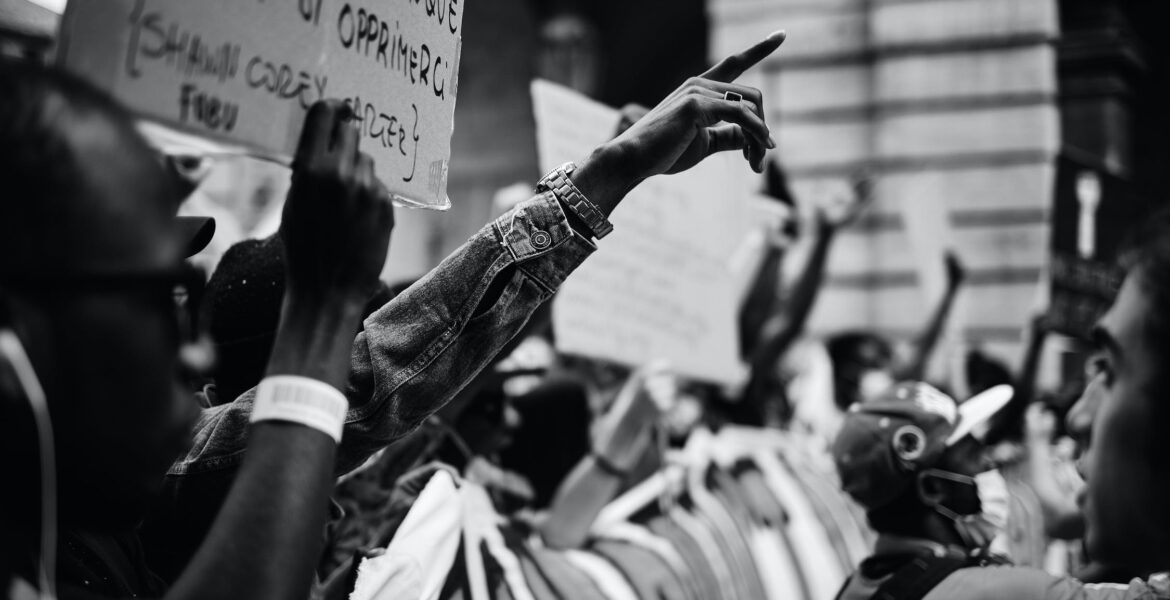The creative industry has had its fair share of protests with artists taking to social media and receiving different reactions from the powers that be and the masses. Staff
Writer GOSEGO MOTSUMI reflects on the issues raised and the results so faR
At a time when anger has much of the nation protesting either through social media or on the streets, most music artists have joined the bandwagon and added to their protest songs. Just this past week, a few disgruntled artists embarked on a march calling for the resignation of the Minister of Youth Empowerment, Sports and Culture Development, Tumiso Rakgare, and cancellation of the upcoming Botswana Musicians Union (BOMU) Awards.
Some the disgruntled artists were arrested and released the same day with charges of protesting without a permit and breaching COVID-19 protocols. “Artists are starving. The P2 million sponsorship (of BOMU Awards) is enough to relieve many artists across the country. The struggle continues until our voices are heard,” said lead protestor, General Tuco, during the march.
In response, Total Music Group Director, who is also BOMU Awards Coordinator, Seabelo Modibe, said the artists who are not registered BOMU members were misinformed and needed to educate themselves about the music business.
“The awards funds are going back into the pockets of artists who have put in the work. We can’t ask the government to continue giving artists money they haven’t worked for. Let’s put in the work,” Modibe said in an interview.
BOMU registered artists Thabang Garogwe, Obakeng Sengwaketse and James Mujuru have also released a joint statement condemning the protesting artists. They said the allegations levelled against the union and its leadership were false as BOMU has been working tirelessly and engaging the government on various ways of improving the welfare of artists and advancing growth of the industry since the advent of COVID-19.
The statement read in part: “We wish to point out that the disgruntled persons are not BOMU members. As a result, we are constrained to respond to their wild accusations as we do not owe them any accountability as BOMU and its members. We can only advise that if indeed they are musicians who take their craft seriously, they should take advantage of our organisation by registering as members so that they can enjoy the benefits which accrue to members.”
The disgruntled artists vowed to continue to speak out after their protest hit a snag. Meanwhile, the awards ceremony is slated for 23 October while Minister Rakgare continues in office.
Over the years, most musicians have employed civil union tactics to call out social problems instead of using their creativity to release protest music. At a time of political and social unrest, protest music becomes a crucial refuge for artists as a release valve for their convictions and for the masses in need of a rallying cry. In 2016, former music artist Dithuso ‘DT’ Selepeng staged a one-man protest to air his displeasure with BOMU’s major flop in the awards. Sadly for Selepeng, the solo protest itself was a flop.
Rapper Tshepiso ‘Kast’ Molapise pulled off a more subtle protest, walking 1 000km to make a case for 100 percent local lineups that he said can fill the National Stadium. He subsequently succeeded and filled the stadium with an all-local lineup with his “Tlatsa Lebala Festival” in 2017. Kast later embarked on another walk in 2018 to press for formation of a national arts council that is currently being established.
Controversial rapper Atlasaone ATI Molemogi pulled off two street protests before he was stopped in his tracks. He took to Facebook live to make a fervent call for racial economic justice and later attempted to access State House to force a meeting with President Mokgweetsi Masisi.
Molemogi was arrested and his short stint prompted protests for his release but his main concerns remain largely unattended and may stay that way for some time, thanks to COVID-19. In one of his live Facebook videos, he revealed that his parents had prevailed upon him to stand down.
In December 2019, a group of musicians led by King of Kwaito-Kwasa, Odirile “Vee Mampeezy,” took to the streets to press for the reopening of the performance industry after nine months of no activity to curb COVID-19. They started their protest at GSS Grounds in Gaborone where they were dispersed by the police but defiantly went on to hold a protest festival at Old Naledi. Fast-forward to a year later, the performance industry is yet reopen.
Just recently, rapper Ozi F Teddy chose to voice his frustrations through a protest song “Bodybag V (Freedom of Speech).” Expressing impatience with the government’s alleged incompetence and failure to manage the COVID-19 pandemic. The provocative song led to conversation across the country and can be said to have contributed to improved management of the pandemic, installation of oxygen tanks at health facilities being one example.
Addressing issues of youth unemployment and accountability for public funds remain a deficit in the rapper’s demands that are also concerns of Batswana in general. Musicians have raised issues across the cultural and socio-political spectrum and are inspiring people to civic action.




